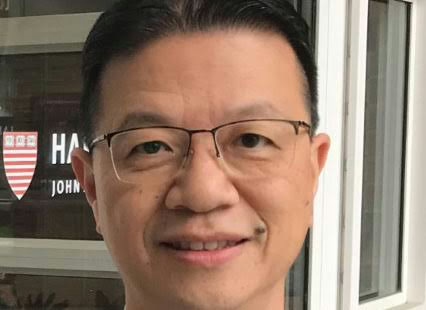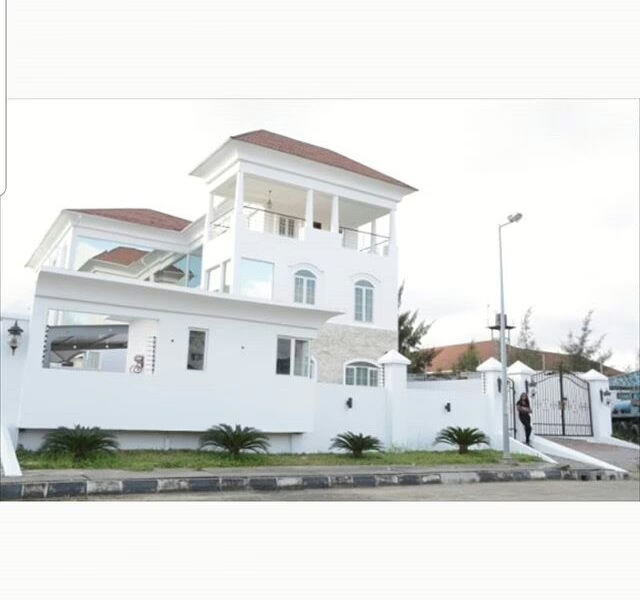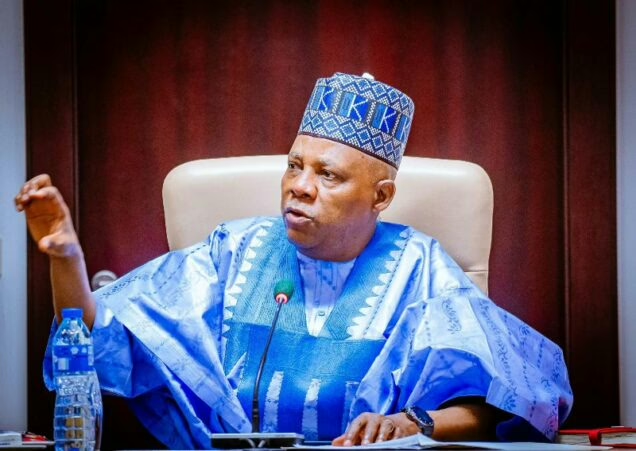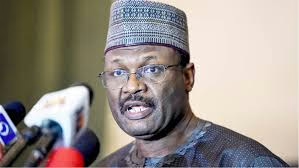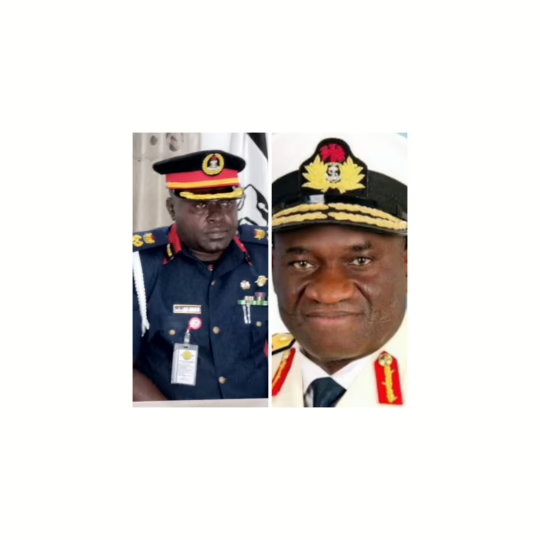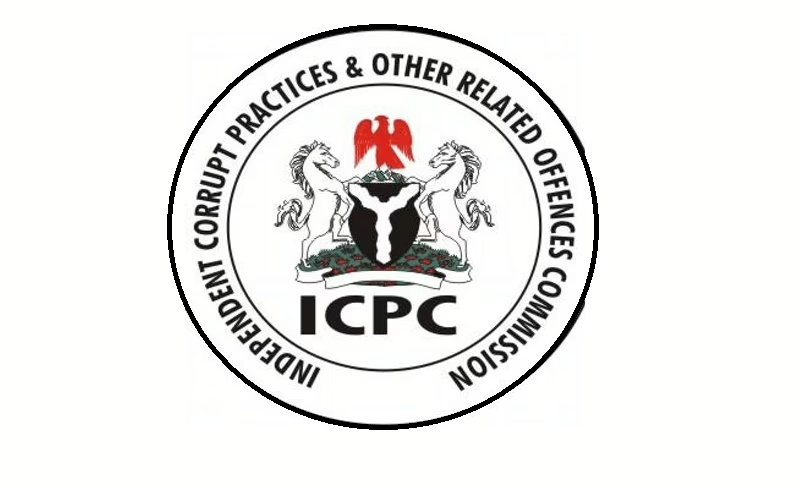Lagos Health Stakeholders demand diagnostic accuracy as key to Patient Safety
Oba Lawal with top Lagos State Government officials at the event
Published By: Kazeem Ugbodaga
By Kazeem Ugbodaga
The Lagos State Government and other stakeholders have demanded improved diagnosis for patient safety from healthcare professionals in the State.
Hundreds of key stakeholders in the health sector had gathered at the the Civic Centre, Victoria Island to mark the World Patient Safety Day 2024, with the theme: “Improving Diagnosis for Patient Safety.”
At the event were the Lagos State Commissioner for Health, Prof. Akin Abayomi; Dr. Olukemi Ogunyemi, Special Adviser to the Lagos State Governor on Health; Dr. Yemi Solanke-Koya, Chairman of the Board of the Health Facilities Monitoring and Accreditation Agency (HEFAMAA) and Executive Secretary of HEFAMAA, Dr. Abiola Idowu.
There were also the Oniru of Iru Land, Oba Gbolahan Lawal; Dr. Olamide Okulaja, Senior Director, Scale Program Maisha Med; Dr. Rita Oladele, Associate Professor/Consultant College of Medicine, University of Lagos, among others.
Speaking at the event, Prof. Abayomi reaffirmed government’s commitment to ensuring patient safety and improving healthcare standards through accurate diagnosis and proper treatment protocols.
He highlighted the critical role of empathy, thorough patient history, and adherence to diagnostic processes in safeguarding patient care.
Abayomi emphasised that globally, the benchmark for quality healthcare begins with accurate diagnosis.
“The first step in diagnosis is empathy,” he stated, explaining that this approach encouraged patients to share vital information with their healthcare providers.
He also stressed the importance of taking a thorough medical history, noting that healthcare professionals often skipped this essential step, which is crucial in identifying the patient’s condition.
“By the time a doctor takes a detailed history, they should have at least 90% of the diagnosis before even proceeding to the lab for confirmation,” Abayomi explained, adding that this is where the relationship between primary healthcare providers and allied professionals begins.
He warned against healthcare professionals deviating from this standard procedure, calling it a “detriment to the patient.”
Abayomi also addressed the issue of quackery in the healthcare system, emphasising government’s zero tolerance for unqualified practitioners.
He stated, “As a government, our job is to establish proper processes and eliminate quackery. Professionals who operate outside their areas of specialization are engaging in internal quackery, and we have severe penalties for this.”
He highlighted that strict protocols have been put in place to ensure no healthcare professional deviates from established norms.
The Commissioner also discussed the advancement of molecular diagnostics, which he said is crucial in understanding the relationship between the genetics of diseases and the environment.
He pointed to the Health Facilities Monitoring and Accreditation Agency (HEFAMAA) as playing a pivotal role in regulating this evolving field.
In addition, Abayomi highlighted the increasing use of rapid diagnostic tests and telemedicine, which are revolutionizing healthcare delivery.
However, he cautioned that healthcare professionals must know how to use these technologies accurately to avoid misdiagnosis.
“Medical practice is changing, and as regulators, we need to adapt to these changes. We have established a program to ensure rapid diagnostic tests are used correctly,” he said.
The Commissioner also expressed concerns about the casual use of injections in treatments, stressing that injections should only be administered when necessary, as they come with risks.
He advocated for the principle of “no treatment without a test,” urging healthcare professionals to avoid making assumptions about a patient’s condition without proper testing.
“As a government, it is our responsibility to ensure that drugs are not abused and that proper protocols are followed in diagnosis and treatment,” Abayomi stated.
He noted that Lagos State is working toward establishing clinical governance frameworks to ensure that healthcare providers adhere to international best practices, thereby ensuring patients receive nothing less than the best care.
In her welcome address, the Executive Secretary of HEFAMAA, Dr. Idowu reaffirmed the agency’s commitment to patient safety and reducing harm in healthcare delivery.
Idowu underscored the central role that accurate and timely diagnoses play in effective patient care, emphasising the theme of this year’s celebration, “Improving Diagnosis for Patient Safety.”
She noted that every misdiagnosis represented a failure in clinical practice and eroded the trust that patients place in healthcare providers.
“Ensuring the protection of our patients is the very foundation upon which the healthcare system stands. Our fundamental principle as healthcare workers is to ‘do no harm.’ Accurate diagnosis is critical in safeguarding that principle,” Idowu said.
Oba Lawal with top Lagos State Government officials at the event
She called for greater transparency and accountability among healthcare professionals in recognising and reporting diagnostic errors, stressing the need for a culture of continuous learning and improvement in clinical practice.
Idowu also emphasised the importance of patient involvement in the diagnostic process, encouraging them to ask questions and seek second opinions when necessary.
The HEFAMAA’s Executive Secretary reiterated the agency’s dedication to ensuring that healthcare facilities meet the highest standards of diagnostic accuracy and patient safety.
She highlighted the agency’s efforts in setting minimum required standards for healthcare infrastructure, equipment, staffing, and processes to ensure compliance across public and private facilities.
Dr. Ogunyemi, Special Adviser to the Lagos State Governor on Health stressed the critical importance of accurate and timely diagnoses in ensuring effective patient care.
- Lagos cracks down on Waterfront violations: DHL, Polo Avenue, 66 others served notices
- Lagos celebrates swift completion of Odo Iya Alaro Bridge repair
- Lagos impounds 28 vehicles in massive crackdown on illegal parking
She noted that a correct diagnosis is the foundation for appropriate treatments, and that any errors in this process could lead to devastating consequences, including compromised care, loss of trust in the healthcare system, and, in some cases, tragic outcomes.
“Lagos State has always been at the forefront of healthcare innovation and reform in Nigeria. Under the leadership of His Excellency, Governor Babajide Sanwo-Olu, we recognize that patient safety is non-negotiable. A correct diagnosis is the foundation upon which effective treatments are built, and ensuring that the diagnostic process is reliable, timely, and accessible remains our priority,” Ogunyemi stated.
She acknowledged the global challenges in diagnosis, citing factors such as inadequate resources, human error, and system inefficiencies, which contribute to diagnostic errors and patient harm.
However, Ogunyemi highlighted Lagos State’s efforts to address these issues through a multi-pronged approach.
The state’s strategy includes significant investments in healthcare infrastructure, ensuring that diagnostic laboratories, radiology services, and primary healthcare centers are equipped with modern tools and technology to support accurate diagnoses.
Additionally, Lagos has prioritized the training and continuous professional development of healthcare workers, including doctors, nurses, laboratory scientists, and allied health professionals.
Ogunyemi also emphasised the state’s collaboration with private healthcare providers, given their critical role in delivering services to millions of Lagosians.
By maintaining regulatory oversight and fostering partnerships, she said Lagos State aimed to ensure that private healthcare facilities meet the highest standards of safety and diagnostic efficiency.
“Technology will play a key role in our journey to improve diagnostic accuracy,” Ogunyemi remarked, pointing to the integration of telemedicine as a promising solution.
She noted that digital health solutions, such as telemedicine, could enhance diagnostic services’ accuracy, reduce human error, and make them more accessible, particularly in underserved areas.
Despite the advancements in technology, Ogunyemi underscored the importance of compassionate communication between healthcare providers and patients.
Effective diagnosis, she explained, required careful listening to patients, understanding their symptoms, and considering their full medical history, adding that enhancing patient-provider communication and educating patients about their role in the diagnostic process are essential elements in Lagos State’s patient safety agenda.
As the state marked World Patient Safety Day, Dr. Ogunyemi urged all stakeholders to recommit to ensuring patient safety across the healthcare spectrum, from primary care to tertiary hospitals.
She expressed gratitude to healthcare professionals across Lagos for their dedication, calling their efforts the backbone of the state’s healthcare system.
“Our goal is to create an environment where patients can trust that their healthcare journey, from diagnosis to treatment, will be safe, effective, and equitable,” she concluded.
Dr. Solanke-Koya, Chairman of the HEFAMAA Board called on healthcare practitioners to prioritise accurate diagnosis and patient safety in their medical practice.
Solanke-Koya emphasised the critical role of continuous skill acquisition, adherence to regulatory standards, and the use of technology in improving healthcare delivery.
“As practitioners, our primary duty is to ensure the well-being of every patient that comes to us,” Solanke-Koya stated.
She highlighted that 90 percent of a patient’s diagnosis is dependent on the healthcare provider’s expertise and thorough evaluation.
She further stressed the need for healthcare professionals to consistently update their knowledge and skills to stay current with evolving medical practices.
Collaboration among all stakeholders in healthcare delivery was also a focal point of his address. Solanke-Koya urged practitioners to work closely with other professionals within the health sector to ensure comprehensive and effective patient care.
“We must comply with regulatory standards and cooperate with the entire health circle to ensure a seamless and safe healthcare experience for all patients,” she added.
The HEFAMAA Board Chairman also warned against the dangers of internal quackery, where professionals step outside their areas of expertise, potentially compromising patient safety.
She advised practitioners to strictly adhere to their fields of competence and to base their treatment decisions on accurate diagnoses, rather than simply believing patients’ self-reported symptoms.
“Don’t take a patient’s word as a diagnosis. Ensure that thorough diagnostic tests are carried out before any treatment is administered,” she advised.
The Oniru of Iru Land, Oba Lawal commended the Lagos State Government for its proactive efforts in healthcare, particularly through the Health Facilities Monitoring and Accreditation Agency (HEFAMAA).
Oba Lawal highlighted the importance of improving diagnostic practices to ensure patient safety and emphasised the need for doctors to stay aligned with advancements in medical technology.
“World Patient Safety Day is a significant global event, and I must commend the Lagos State Government for its policy efforts in addressing the challenges posed by urbanization. HEFAMAA, one of the agencies created to address these challenges, is doing an outstanding job,” said Oba Lawal.
He stressed the importance of improving diagnosis for patients, noting that accurate and timely diagnosis is the foundation of effective healthcare.
Oba Lawal encouraged healthcare practitioners to embrace technological innovations in medical diagnostics, which would enhance patient care and safety.
“Our doctors must ensure they are in line with the latest technologies. This is essential to improving diagnosis and, ultimately, patient safety,” he added.


